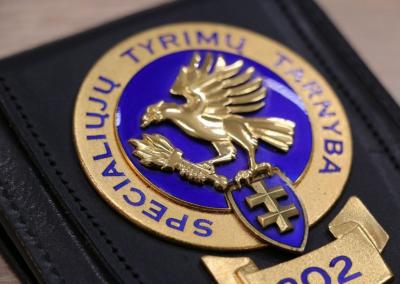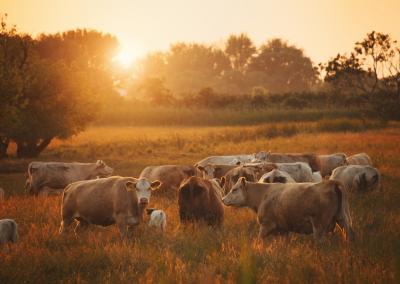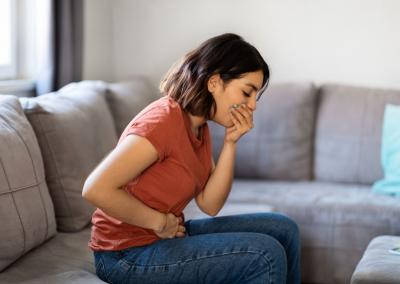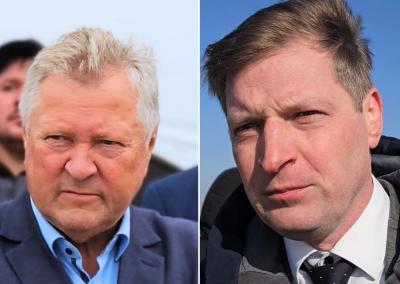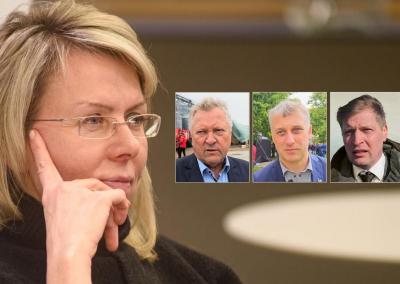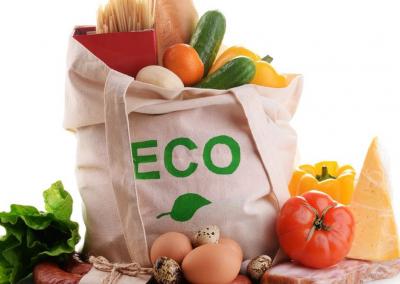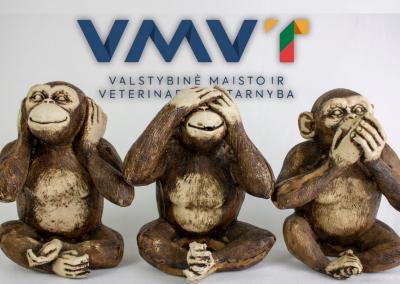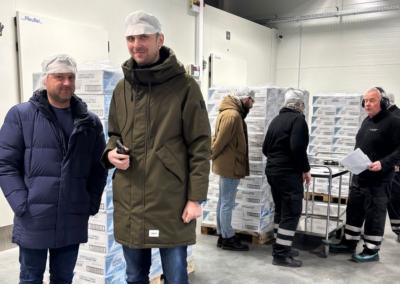Is the FVO hiding information from the public and hiding the interests of big business?
„We would like to clarify that we no longer publish data on the quantities of unsafe products in specific companies, in line with common European practices and data protection laws. This decision was taken in line with common European practices and data protection requirements and because such information may be considered commercially sensitive or confidential“ – this is the response from the spokespersons of the State Food and Veterinary Service when asked to clarify the number of salmonella contaminated meat placed on the market by a specific company. The new position of the VMVT raised another question – whose rights is the Authority protecting?
Cover up the law
„In the new, automated RASFF system, the VMVT does not publish the quantities of unsafe products recalled or distributed, as this is not compulsory information according to the national and EU legislation“, – the sudden change of position is explained by the Authority's spokespersons, who also add that the recall of distributed unsafe products is a long, evolving process that can lead to inaccurate and misleading data for the public.
In making this statement, the MoPH refers to Article 10 of Regulation (EC) No 178/2002 "Public information" and to the practice followed by the Member States of the European Union.
„Quantities do not have a direct influence on consumer decision-making and behaviour“, – states the MoHFW. But will trust in a company really be the same when it puts 5, 500 or 5 000 kg of salmonella-tainted meat on the market...?
The Regulation does not prohibit the publication of what the VMVT does not want to publish
„Agrobite“ has looked into Article 10 of the above mentioned Regulation (EC) No 178/2002, which is the cover that the HVO is trying to hide behind.
It clearly states that public authorities are obliged to indicate „all food and feed or type of food or feed“ if „the food or feed is likely to present a risk to human or animal health, taking into account the reasonableness and the magnitude of the risk“.
So in this case, it is up to the LPA to decide whether the risk is justified and the risk to human health is real. Moreover, it is clear that the Regulation does not prohibit the publication of the quantities of contaminated products to the public.
This is what Article 10 of the Regulation („Public information“) says: „Without prejudice to the provisions applicable under Community and national law on access to documentation, where there are serious grounds for suspecting that a food or feed may present a risk to human or animal health, and taking into account the reasonableness and the magnitude of the risk, the public authorities shall take appropriate measures to inform the general public of the nature of the health risk and shall indicate any food or feed or type of food or feed, the risk posed by the food or feed, the risk it poses and the measures which are being taken or are intended to be taken in order to eliminate, reduce or avoid the risk“ .
It is clear that the regulation is being interpreted by the HVO in a way that benefits itself, although nowhere does it state that the publication of the quantities of contaminated products (if they pose a risk to human health) would constitute an offence by the public authorities.
Unclear system of sanctions
The major Lithuanian meat processing companies – AB „Vilniaus paukštynas“, UAB „Biovela-Utenos mėsa“, UAB „Krekenavos agrofirma“, UAB „Krekenavos agrofirma“, etc., often appear among the notifications of unsafe food products published by the VMVT in RASFF. „Maxima“, „Iki“, „Rimi“, „Norfa“.
Another list, however, which reports food law infringement decisions and information on suspended businesses, is dominated by completely different names – much smaller, individual businesses. Why?
„The decision to restrict activities is taken on the basis of the Order of the Director of the State Food and Veterinary Service „On the approval of the description of the procedure for taking decisions on the application of administrative measures by the State Food and Veterinary Service&"; – the spokespersons of the MoFVT point out, and specify: „Decisions are taken in the light of the individual circumstances of each case and of the actions to be taken in order to control the risk. The number of infringements does not in itself constitute a condition for restricting activities.
An inconvenient truth
„The VMVT ensures that the highest standards of food safety and animal welfare are met“, – this is how the authority presents itself on social media. But does it really live up to this principle?
According to the answers provided by the VMVT, the impression is that the organisation has refused to revise the quantities of contaminated products, not only because of legislation that did not prevent it from doing so in the past, but perhaps because the information it makes public has suddenly become commercially sensitive, or otherwise commercially unfavourable.
The rules that restrict the activities of companies are no less questionable. It seems that large companies, whose products, and thus sometimes contaminated products, reach far more consumers than small, individual companies, escape harsher sanctions. However, the exact amount of contaminated meat that is put on the market will now be kept secret by the HVO.





























